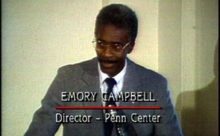Dr. Lorenzo Turner and the Gullah Language
by Dr. Joko Sengova
Dr. Lorenzo Dow Turner was the first African American to do any serious linguistic study of the Gullah language. The North Carolina native became exposed to Gullah during his teaching career at several southern colleges, including Fisk University in Nashville and South Carolina State University in Orangeburg. Turner was determined to illustrate that Gullah was more than just an archaic form of English. The results of his work were published in 1949 in Africanisms in the Gullah Dialect.
In his book, Turner listed nearly 4,000 items of African language origin which he recorded in the speech of Gullah informants living on the South Carolina and Georgia Sea Islands during the 1930s. These African retentions (or "Africanisms") included thousands of personal names, entire African words found in Gullah conversations, and some expressions heard only in stories, songs and prayers.
For example, there were hundreds of Mɛnde words used as Gullah personal names:
Mbiliwa (big drum)
Hawa (lazy)
Ndapi (fight)
Konu (axe)
Ngaya (tear)
and as conversational words:
Ndo (child)
I loni (he stands/stood)
Fa (large tree with fruit that bursts with loud noise)
Sasi (treat contemptuously or squeamishly)
In addition, Turner discovered dozens of expressions found only in stories, songs and prayers:
kambɛ (grave)
kambɛi (the grave)
bawo (to heal, save)
huma (steal, theft)
gbla (near)
Among the inventory of nearly 40 Sub-Saharan Niger-Congo languages that influenced Gullah, about a dozen are languages spoken in the Mano River tri-states of Guinea, Liberia and Sierra Leone in West Africa. These are Fula, Gola, Kissi, Kpɛllɛ, Krio, Kru, Mandinka/Malinke, Mɛnde, Susu, Temne and Vai. According to a review article written in 1965 by British historian P.E.H. Hair, Mɛnde and Vai account for nearly 25 percent of Turner's 4,000 entries. Translated into rough statistics, this means that Mɛnde and Vai contributed approximately 600 personal names, 60 words used in ordinary conversation, and 90 expressions in folklore and prayers, a total of about 750 retentions.
Many contemporary linguists agree that Krio and Gullah also have striking similarities in vocabulary and grammatical structure. However, it is Turner's third category of Africanisms (expressions found in stories, songs and prayers) that have received focal attention among some folklorists, such as Joseph Opala, who appeared in Family Across the Sea. Opala and fellow folklorist Cynthia Schmidt recently found relatives of Amelia Dawley, one of Turner's informants at Harris Neck-Darien in Georgia, who remembered portions of Ms. Dawley's Mɛnde funeral song, A Woko Mu Mone. The Freetown Players performed this song in Family Across the Sea.
Although only a few authentic African words, such as goober (peanuts), okra and kuta (turtle) remain in Gullah, the connection between the people of West Africa and those of the South Carolina and Georgia Sea Islands still lives. African language elements of prosody (pitch, stress, intonation), as well as words and sentence patterns reflecting African language origins and usages, can be heard, even today, in the subtlest forms and nuances of Gullah speech.
Dr. Joko Sengova is currently an assistant professor in the English and Communications Department at the College of Charleston. He also teaches in the school's language, sociology and anthropology departments. He earned his B.A. degree from Fourah Bay College, University of Sierra Leone, and his M.A. and Ph.D. from the University of Wisconsin-Madison.
